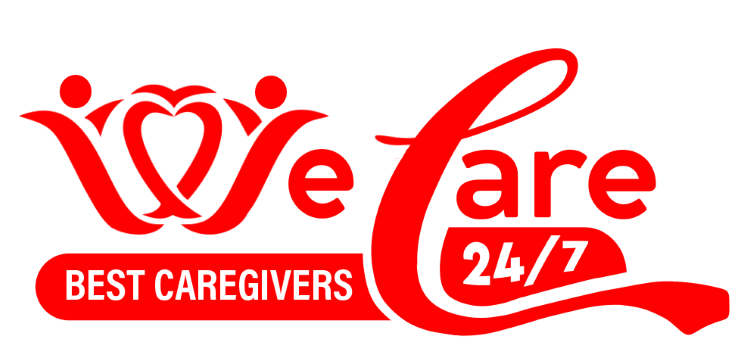Ultimate Guide for NJ Families: Navigating Preschool Special Education

Empowering New Jersey Families: Your Guide to Preschool Special Education
Navigating the educational landscape for a young child with developmental differences can present unique challenges for New Jersey families. As a trusted resource for caregivers and parents in the Garden State, WeCare Home Caregivers understands the commitment involved in ensuring a child receives the support they need from an early age. This comprehensive guide is designed to clarify the process of accessing preschool special education services for children aged three to five years old in New Jersey, providing insights and resources to empower your family.
For adult children researching options for their parents, or seniors managing family care, understanding these early intervention steps can provide valuable context and highlight the importance of coordinated family support. Caregivers of individuals with disabilities, especially, will find this information helpful in understanding the pathway for early intervention and support, which can significantly impact long-term well-being and independence.
Understanding Preschool Special Education (PSE) in New Jersey
Preschool Special Education (PSE) in New Jersey refers to the provision of specialized services and instruction for children between the ages of three and five who demonstrate developmental delays or disabilities. These services are mandated by the federal Individuals with Disabilities Education Act (IDEA), ensuring that eligible children receive a free, appropriate public education (FAPE) tailored to their unique needs.
In New Jersey, the PSE program is administered through local public school districts. It aims to address a child’s developmental areas of concern, such as communication, physical development, cognitive skills, social-emotional growth, or adaptive behavior. Early intervention at this stage is considered highly beneficial, setting a strong foundation for future learning and development.
Eligibility Criteria for PSE in NJ
To qualify for preschool special education services in New Jersey, a child must be at least three years old but not yet six, and be determined to have an eligible disability. Eligibility is not based solely on a diagnosis, but rather on whether a child’s developmental delay adversely affects their educational performance.
- Age Range: Children are eligible from their third birthday until they turn six, or until they enter kindergarten, whichever comes first.
- Developmental Delay: Eligibility typically requires a significant delay in one or more developmental areas as determined by a comprehensive evaluation. This could include delays in speech and language, motor skills, cognitive abilities, social-emotional development, or adaptive skills.
- Adverse Impact: The delay must negatively impact the child’s ability to participate and learn in typical preschool activities.
A multi-disciplinary team, often called a Child Study Team (CST) in New Jersey, conducts the evaluation to determine if these criteria are met. Their findings guide the decision-making process for service provision.
The Evaluation Process: Steps to Accessing Services
The journey to accessing preschool special education services in New Jersey begins with a referral and a comprehensive evaluation. This process is designed to accurately identify a child’s strengths and areas of need.
Referral for Evaluation
Concerns about a child’s development can come from various sources: parents, pediatricians, child care providers, or Early Intervention (EI) specialists. To initiate the process, parents should contact their local public school district’s Child Study Team or Special Services Department. They will guide you through the initial steps, which often involve completing a referral form.
Child Study Team (CST) Involvement
In New Jersey, the Child Study Team typically comprises a school psychologist, a learning disabilities teacher-consultant (LDTC), and a school social worker. For preschoolers, the team may also include a speech-language pathologist or an occupational therapist. This team coordinates the evaluation process and helps determine eligibility.
Comprehensive Assessment
Once a referral is made and parental consent for evaluation is obtained, the CST will conduct a series of assessments. These assessments are diverse and may include:
- Developmental History: A discussion with parents about the child’s developmental milestones, health history, and family background.
- Educational Assessment: Observations of the child in various settings and assessments of their pre-academic skills.
- Psychological Assessment: Evaluations of cognitive abilities and social-emotional development.
- Speech and Language Evaluation: Assessment of communication skills, expressive and receptive language.
- Occupational Therapy (OT) and Physical Therapy (PT) Evaluations: If concerns exist about fine or gross motor skills.
- Functional Behavior Assessment (FBA): If behavioral concerns are prominent.
The CST compiles these findings into a comprehensive report. Parents are then invited to a meeting to discuss the results and determine eligibility for services.
Individualized Education Program (IEP) for Preschoolers
If a child is found eligible for special education services, an Individualized Education Program (IEP) is developed. The IEP is a legally binding document that outlines the specific educational and related services a child will receive. For preschoolers, the focus is often on foundational skills and preparing them for kindergarten.
Key Components of an IEP
An IEP includes several important sections:
- Present Levels of Performance (PLP): Describes the child’s current academic and functional strengths and challenges.
- Annual Goals: Measurable goals the child is expected to achieve within a year, broken down into objectives.
- Special Education and Related Services: Details the specific therapies (e.g., speech therapy, occupational therapy, physical therapy), specialized instruction, and support services the child will receive.
- Extent of Participation in General Education: Explains how much time the child will spend with non-disabled peers.
- Service Delivery: Specifies when, where, and how often services will be provided.
- Transition Plan: For preschoolers, this often focuses on transitioning to kindergarten.
Parents are essential members of the IEP team and have the right to participate in all meetings, provide input, and approve the plan. Their insights are invaluable in crafting an effective and personalized program.
Types of Services and Educational Settings
Preschool special education services in New Jersey are varied and can be delivered in different settings, depending on the child’s individual needs as outlined in their IEP. The goal is to provide services in the least restrictive environment (LRE) possible, meaning children are educated with their non-disabled peers to the maximum extent appropriate.
Common Services
- Speech and Language Therapy: Addresses communication delays, articulation, language comprehension, and expression.
- Occupational Therapy (OT): Focuses on fine motor skills, sensory processing, and daily living activities.
- Physical Therapy (PT): Supports gross motor development, balance, and coordination.
- Specialized Instruction: Direct teaching by a certified special education teacher, either individually or in small groups.
- Counseling Services: For social-emotional development.
Educational Settings
Services can be provided in various environments, including:
- Integrated Preschool Programs: Classrooms that include both children with and without disabilities, often within public schools or private centers. This setting promotes inclusion and peer modeling.
- Self-Contained Special Education Classrooms: For children with more intensive needs, these classrooms are specifically designed for students with disabilities and taught by a special education teacher.
- Therapy Sessions: Individual or group therapy sessions provided by specialists, which may occur within the school or through an approved provider.
- Itinerant Services: Specialists travel to the child’s home or a community setting (like a daycare) to provide services.
The IEP team determines the most appropriate setting and services based on the child’s unique profile. The goal remains to equip children with the skills necessary for success as they grow.
Navigating the System and Advocating for Your Child
The process can feel complex, but several strategies can help New Jersey families navigate the special education system effectively. Active participation and clear communication are key.
- Maintain Detailed Records: Keep a well-organized binder or digital folder with all communications, reports, assessments, and IEP documents. This helps track progress and ensures you have access to important information.
- Ask Questions: Do not hesitate to ask for clarification on any part of the process, assessment results, or IEP components. Understanding your child’s needs and the services provided is paramount.
- Prepare for Meetings: Before IEP meetings, list your child’s strengths, your concerns, and any questions you have. This ensures your voice is heard and considered.
- Understand Your Rights: Familiarize yourself with parental rights under IDEA and New Jersey special education law. Advocacy organizations can provide valuable information and support in this area.
- Seek Support Networks: Connect with other parents navigating similar experiences. Local parent groups or online forums can offer emotional support and practical advice.
Remember, you are your child’s primary advocate. Your involvement and informed decisions are vital to securing the best outcomes for them.
Transitioning from Early Intervention (EI) to PSE
Many children receiving preschool special education services previously participated in New Jersey’s Early Intervention System (NJEIS), which serves children from birth to three years old. The transition from NJEIS to preschool special education is a coordinated process.
Around a child’s second birthday, the NJEIS service coordinator will begin discussions about transition planning. This involves meetings with the family and representatives from the local school district’s Child Study Team. The goal is to ensure a seamless transition of services, preventing any gaps in support as the child turns three. The school district will then conduct their own evaluation to determine eligibility for preschool special education.
Funding and Costs
Under federal law (IDEA) and New Jersey state regulations, eligible children are entitled to a Free, Appropriate Public Education (FAPE). This means that all necessary special education and related services outlined in a child’s IEP are provided at no cost to the parents. This includes evaluations, therapy services, specialized transportation (if required), and placement in appropriate educational settings.
Families should not incur out-of-pocket expenses for these services. If a private placement is determined to be the appropriate least restrictive environment by the IEP team, the cost is covered by the school district. It is important to confirm that any services or programs recommended are indeed part of the FAPE mandate.
Parental Rights and Resources in New Jersey
New Jersey parents have specific legal rights regarding their child’s special education. These rights are designed to ensure meaningful participation and protection throughout the process.
Key Parental Rights Include:
- Right to Participate: Parents are members of the IEP team and must be involved in all decisions regarding their child’s education.
- Prior Written Notice: Parents must receive written notice before the school district proposes or refuses to initiate or change the identification, evaluation, or educational placement of their child.
- Informed Consent: Parental consent is required for initial evaluation and initial provision of special education services.
- Access to Records: Parents have the right to inspect and review all educational records related to their child.
- Dispute Resolution: If disagreements arise, parents have the right to pursue mediation or a due process hearing.
Valuable NJ Resources:
- New Jersey Department of Education (NJDOE) – Special Education: The official state department provides extensive information on regulations, guidelines, and resources. (https://www.nj.gov/education/specialed/)
- Statewide Parent Advocacy Network (SPAN) of NJ: SPAN provides free information, training, and support to families of children with disabilities. They are an excellent resource for understanding rights and navigating the system. (https://spanadvocacy.org/)
- Your Local School District’s Child Study Team: This is your primary point of contact for initiating services and understanding local procedures.
Leveraging these resources can significantly reduce stress and enhance a family’s ability to advocate effectively for their child.
How WeCare Home Caregivers Supports NJ Families
At WeCare Home Caregivers, we recognize that the journey of raising a child with special needs, or supporting family members through it, involves numerous demands. While our primary focus is on in-home care, our services can indirectly support families navigating preschool special education by alleviating some daily pressures and providing essential assistance. This allows caregivers more time and energy to dedicate to their child’s educational needs.
Our professional caregivers can offer support that complements a family’s efforts, such as:
- Respite Care: Providing temporary relief for parents and primary caregivers, allowing them to attend IEP meetings, therapy appointments, or simply rest and recharge.
- Assistance with Daily Routines: Helping with household tasks, personal care, or transportation to appointments, freeing up parental time for advocacy and educational activities.
- Support for Seniors and Adult Children: For grandparents or other senior family members involved in care, our services can provide the direct support they need, ensuring they remain active and engaged in the child’s life without undue physical strain.
- Holistic Family Support: Understanding the broader family dynamics, we contribute to a stable home environment that benefits all members, including the child receiving special education services.
We are dedicated to enhancing the quality of life for New Jersey families by providing compassionate and dependable care, allowing you to focus on what matters most: your child’s development and well-being.
Conclusion: A Path to Growth and Opportunity
Navigating preschool special education in New Jersey represents a significant step in supporting a child’s developmental journey. While the process requires dedication and informed decision-making, the system is designed to provide comprehensive services that empower young learners. By understanding the evaluation process, IEP development, available services, and parental rights, New Jersey families and caregivers can confidently advocate for their child’s needs.
Early intervention through preschool special education has a profound impact, helping children build essential skills, fostering independence, and preparing them for future academic success. WeCare Home Caregivers stands alongside New Jersey families, offering support and assistance as you pursue the best possible outcomes for your loved ones. We are here to help ease the load, enabling you to dedicate your energy to your child’s bright future.



